
by Mannahattamamma (UAE) | May 21, 2014 | 2014, Awareness, Cultural Differences, Education, Expat Life, Feminism, Girls, Government, Human Rights, Nigeria, Politics, UAE, USA, Women's Rights
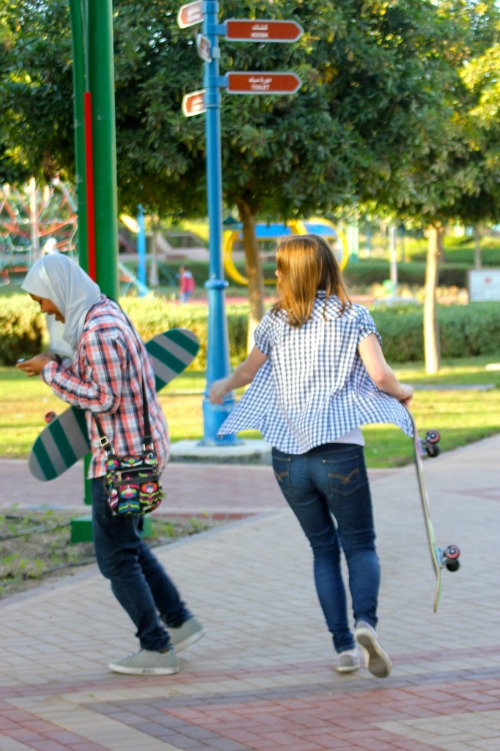
In March, I wrote a post in honor of Gloria Steinem’s birthday, in which I mentioned that when Steinem spoke at my college graduation way back in the 1980s, my friends and I had wished for a speaker who was more “relevant.” In our innocence, we believed that Steinem had won her fight; we were graduating from a women’s college and thought that fight for gender equality had been more or less won.
More than two decades later, I wish I could say that Steinem was irrelevant and that gender inequality is something we only read about in the history books.
When I wrote that post about Steinem, I was thinking about the Common Core curriculum, which relegates women’s contributions to history to the sidelines. Now, of course, we are all confronted with the horror that’s unfolding in Nigeria, and while the plight of those schoolgirls devastates me, it has become, in my mind, another instance in a long list of the ways in which groups (comprised mostly of men) attempt to score political points by seizing control of women’s lives. As an example, think about the Tea Party conservatives in the US, who prove their conservative bona fides in the United States by voting against support for Planned Parenthood, or Head Start, or universal kindergarten, or…
What is so scary about educating a girl? In the middle ages, accusations of witchcraft were often leveled against women who had amassed too much wealth or land, or who in some way differed from those around them. We teach our children that things like the Salem witch trials happened because “people didn’t know better” or because of “mass hysteria” but sometimes I wonder how far we have progressed since those days. What happens to women who challenge the status quo–or who have the potential to challenge the status quo? Don’t they still run the risk of being punished, whether literally or figuratively?
It’s funny to me now, but when I first moved to Abu Dhabi the two most obvious indications that we’d left Manhattan behind—besides the searing heat—were the adhan and the abaya-clad women: religion and covered bodies. I found the abayas more unsettling than the call to prayer, even as I sometimes envied the women their public invisibility. The longer we live here, however, my perceptions have changed so that I no longer see hijab as an automatic symbol of oppression or subjugation or second-class citizenry.
I would imagine, however, that as women here, we’ve all had moments where we’ve felt marginalized, silenced, lesser: the day I trotted down the sidewalk to get in a waiting cab and the cab driver chastised me by saying “women should not run, madam, I will wait, and you should walk.” Or when a guard at the border crossing into Oman looked over at the passenger seat where I was sitting (in long trousers) with one foot propped on the dashboard and told me “to put my foot down, sit like a lady, more properly, sit properly.” When that happened my first impulse was to laugh: surely he couldn’t be serious? But, of course, he was serious. I put both feet on the floor and looked at the map so that I didn’t toss out a few well-chosen swear words. (A general rule regardless of where you are: don’t swear at anyone, male or female, who is wearing a uniform at a border crossing.)
So yes, in that instance, I was silenced as I suppose I was by the cab driver too, who took it upon himself to offer some unsolicited advice. And yes, there is now a slight internal pause before I leave the house as I run through a kind of inner checklist about what I’m wearing: if short sleeves, a long skirt or pants, or vice versa (long sleeves, shorter skirt or shorts); do I have a shawl (equally for frigid air conditioning and bare shoulders); if I’m going to the beach, I make sure that my beach cover-up is more than a ratty t-shirt. There are days where I know I’ve failed the checklist and am too busy or late to care, but overall, I dress more modestly now than I used to and probably that’s not a bad idea: no one needs to see a fifty-year-old woman slopping down the street in cut-off shorts and a tank top.
Am I being repressed, or respectful? Does my feminism mean that I yell at the cabbie, keep my foot defiantly on the dashboard, saunter down the street in a halter top and tight jeans? Or, alternatively, does feminist politics remind us that silencing and the policing of women’s bodies happens—sadly—in almost every culture in the world, including the US? Without making light of the specifics of being female in this region, I’ve come to think of the issues facing women in this part of the world as being differences in degree, not kind, from the problems facing women in other parts of the world.
What do we, as women, do to help other women and girls find their voices–find our own? How do we create strength to silence those who would silence us?
This is an original post to World Moms Blog by Deborah Quinn in the United Arab Emirates of “Mannahattamamma.”
After twenty-plus years in Manhattan, Deborah Quinn and her family moved to Abu Dhabi (in the United Arab Emirates), where she spends a great deal of time driving her sons back and forth to soccer practice. She writes about travel, politics, feminism, education, and the absurdities of living in a place where temperatures regularly go above 110F.
Deborah can also be found on her blog, Mannahattamamma.
More Posts
Follow Me:


by Mannahattamamma (UAE) | Mar 19, 2014 | 2014, Computers, Cultural Differences, Culture, Education, Expat Life, Government, Homeschooling, Living Abroad, Multicultural, Older Children, Politics, Religion, School, Social Media, Traditions, UAE, USA
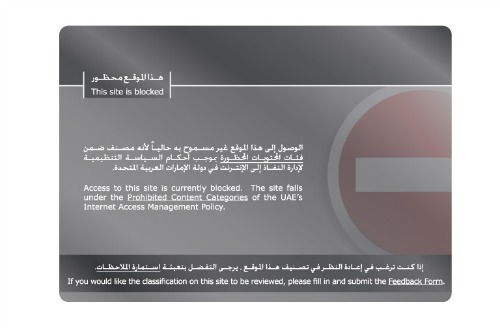 I always swore I would never home-school my children. I know many people do, and do it quite successfully, but I’m awfully fond of the quiet that descends on my house after they’ve tromped off to school. If that tromping were only happening from the bedroom to, say, the kitchen table, I think I might simply lock myself in the bathroom and never come out.
I always swore I would never home-school my children. I know many people do, and do it quite successfully, but I’m awfully fond of the quiet that descends on my house after they’ve tromped off to school. If that tromping were only happening from the bedroom to, say, the kitchen table, I think I might simply lock myself in the bathroom and never come out.
But as so often happens, my vow has collided with reality and I have found myself, in recent weeks, trolling home-schooling websites in search of teaching resources. My kids are now 9 (nine and a half, he would say indignantly) and 13; they go to a British school here in Abu Dhabi. That means they’ve spent a lot of time learning various English kings and queens, although they can’t recite them all in order. They study “maths,” and do prep rather than homework; they study English history and geography; they read mostly English writers in their literature classes. In addition to all those Anglo studies, they take Arabic language classes four days a week and once-weekly class called “Islamic Studies.” The Arabic classes are mandated by ADEC (Abu Dhabi Education Council) and I have to say, I’m much more interested in my kids learning Arabic than I am in their ability to name all the English kings and queens.
Having the boys be in an English system has been a learning curve for all of us. We’re learning two languages, actually, Arabic and, well, English: the boys now live in a world where things are “grey,” luggage goes in the “boot,” and we put garbage in the “bin.”
I’m not considering a dabble in the home-schooling system in order to beef up my boys’ appreciation of the Queen’s English, however. My kids, like every schoolchild in the country, have a curriculum that is at least in part determined by the UAE government, and that means there are things that aren’t supposed to be taught. I live in a place where censorship happens and where, unlike the States, the policies cannot be overtly challenged in the courts. So, for instance, in the States if you live in a town where they want to ban the Harry Potter books, you can take the school district to court. Not here.
We had to sign a permission slip so that our older son could get the science textbook that included the chapter on reproduction (with pictures of, you know, the embarrassing bits); his Latin class translates vinum as … grape, not wine. These are relatively small annoyances, although of course they are far from ideal.
There are, however, more serious concerns in terms of what shouldn’t be included in history courses and literature courses, and that’s where I find myself trolling the home-schooling sites for resources. The Holocaust can’t be taught here; Israel and Judaism are not supposed to be mentioned here; communism isn’t supposed to be discussed; evolution isn’t supposed to be taught; and the list goes on. Sometimes it feels as if we’re living in some kind of Bible-thumping town in the rural U.S and I realize, yet again, that fundamentalism can be seen as a global phenomenon that differs only in the nature of its prohibitions: the fear that motivates the prohibitions stays constant.
Before you leap to any conclusions, please know that the Muslim families I know are as frustrated by these government-issued edicts as are the non-Muslim families and many of us have talked together about what we can do to help our children gain a full picture of the world, regardless of what the government says. So it is that what in some contexts (living in Manhattan, for instance) would be a purely theoretical discussion has become in our household, a very pragmatic series of conversations.
Think about it: how would you talk to your kids about censorship? Is censorship always bad? Think about your children, if you have them, and the internet: are there sites you say they can’t see, or have you put a filter or something on your computer to prevent certain kinds of access? Do we agree that there is such a thing as “good” censorship? (Because of that whole teenage-boy-surfing-the-internet thing, I see a (slight) upside to living in a “nanny state.” I am fairly sure that if he wanted to look, my son wouldn’t be able to find basic porn–not to say that if he really wanted to dig around he couldn’t elude the censors, but at this point, I think his porn-directed vocabulary is still too limited to get around the government blocks. I guess we file that under “thank goodness for small favors,” right? )
My husband and I are both professors, and so we are able to bolster and supplement what isn’t happening in school, but we are also having a lot of conversations with our kids about censorship, politics, and the necessity of thinking about things in ways that are different from how we might think about them. We point out that the UAE isn’t Saudi Arabia; there is no Taliban here; the country is not governed by a theocracy of any sort. We know Jewish families who live here; I know gay couples who live here; a Mormon family lives next door to us. I see people on the beach in the scantiest of scanty bathing suits.
Living here means coming to term with nuance, with ambiguity, with living in a world that is organized around “both/and,” rather than “either/or.” The country is progressive and conservative; censorship is a problem that has a context; learning happens as much from what is not there as it does from what is there. It’s complicated and let’s be honest — no nine year old, no thirteen year old—and very few adults—really likes ambiguity. After all, if there is no “in-between” answer, life becomes much easier, doesn’t it?
No, of course I’m not happy that my kids have a biology textbook with the word “pig” marked out. Of course, I’m also not pleased that the Anglo-centric curriculum also neglects things like the US Civil War, other than in the most general sense. But I will say that I think it is, and will continue to be, a powerful learning experience for my children (and us) to have to confront and think about what it means to live in a place where the government attempts to exert such extensive control. I like to think that, paradoxically, these attempts at censorship will make my children more open-minded adults.
Have you ever been confronted with censorship? How have you dealt with it?
After twenty-plus years in Manhattan, Deborah Quinn and her family moved to Abu Dhabi (in the United Arab Emirates), where she spends a great deal of time driving her sons back and forth to soccer practice. She writes about travel, politics, feminism, education, and the absurdities of living in a place where temperatures regularly go above 110F.
Deborah can also be found on her blog, Mannahattamamma.
More Posts
Follow Me:


by World Moms Blog | Mar 10, 2014 | 2014, Awareness, Bilingual, Communication, Cultural Differences, Culture, Elections, Eye on Culture, Guest Post, Human Rights, Humanity, International, Language, Life Lesson, Living Abroad, Media, Multicultural, Politics, Tragedy, USA, World Events, World Interviews, World Motherhood, World Tour, World Voice
Today, we have a special guest post by a Ukranian mother living in the United States, Olena Centeno, of Bilingual Kids Rock. Olena opens the window and lends us her personal perspective to the current events in Ukraine…
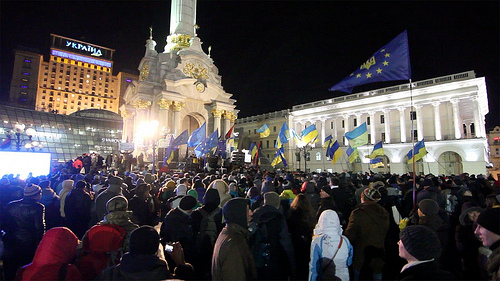
Protest in Kiev, November 2013
What’s it like growing up in Ukraine?
As a Ukrainian, I grew up speaking two languages: Russian and Ukrainian. I ate Ukrainian borsht for lunch and Russian pelmeni for dinner. I love Tchaikovsky’s Sleeping Beauty and Carols of the Bells by Leontovych. I am raising my own children trilingual in English, Russian and Ukrainian. In fact, the two cultures (Russian and Ukranian) are considered so close, that if an Ukrainian abroad says s/he is from Ukraine people often say “Oh, so you are from Russia?”
What’s going on between Russia and Ukraine?
With Russian troops moving across the sea into Ukraine’s Crimean peninsula, a lot of Westerners are starting to ask this question.
The current conflict in Ukraine is more than three months old. It began with a peaceful demonstration on November 21 at Independence Square (Maidan) in Kiev, the capital of Ukraine, when the (now ousted) Ukrainian president (Yanukovich) hesitated to sign an Association Agreement with the EU. This had been one of his major election promises and in breaking it he ignored the desire of millions of Ukrainians.
During the past three months, the “EuroMaidan” demonstration has grown into a much bigger movement. It started as a response to the failed EU deal but then truly turned into a movement against the corrupt government of president Yanukovich, who moved to keep Ukraine in long-lasting and very painful economical ties with Russia.
Then, after the government passed harsh, anti-assembly laws, it became about the basic human right to be able speak and think freely without being punished for it.
More than a hundred lives were lost and thousands injured during violent attempts to remove the demonstrators but people did not leave the cold streets of Kiev. More freedom fighters came from all over Ukraine to support them. Many other Ukrainian cities stood up as well. After three months of struggle, Mr. Yanukovich was impeached and left Ukraine (he refused to sign a resignation; he just ran away). His presidency was considered illegitimate and a new, temporary government was elected.
As Ukrainians were mourning over lives lost and looking into the future with great hope to build their country on principles of trust and freedom, a new enemy emerged: Informational War.
Along with Russia, Eastern Ukraine—where the majority is Russian speaking—is dominated by Russian-language news from the Russian media. Unfortunately, the Russian media coverage of events that have happened over the past three months is falsified [and full of propaganda].
Now, after the armed occupation of Ukrainian territory in Crimea by Russian troops, the reason for their untruthful reporting is understood: Creating social opinion in Russia and Russian-speaking Ukraine justifies military intervention into Ukrainian territories.
Personally, I think Mr. Putin has an imperialistic plan to be the most powerful ruler in modern history—politically and financially—and he will stop at nothing to add Ukraine to his control.
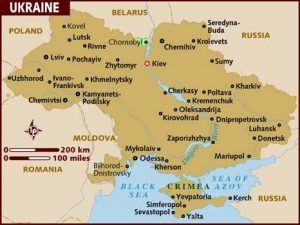
Russian Media Propaganda Uncovered
The following are all lies that have been spread by the Russian media leading up to the invasion of Ukraine by Russian troops:
1. FALSE: Kiev was Overrun by Violent Riots
Despite violent clashes, most of Kiev stayed peaceful throughout the demonstrations. The day-to-day lives of residents were largely unaffected outside of Independence Square and the areas immediately surrounding it. Very little of Kiev or the surrounding countryside was damaged or disturbed by the protests.
I know this because I called my family and friends every day. My nephews were going to school as usual, most of the people attended work on a daily basis, and all shopping malls and grocery stores were working (except for a few in the middle of the protest areas downtown).
2. FALSE: Anti-Russia Fascists Led the Ukrainian Protests
The vast majority of protesters were ordinary citizens tired of a government that they viewed as corrupt and unwilling to listen to the people. There were no fascist elements leading the demonstrations, and there are none leading the new government.
Many of the people I know personally were in Maidan: teachers, IT professionals, doctors, stay-at-home moms, businessmen, university professors, hair stylists and many others. People I worked with and went to school with. And no one will ever convince me that they are fascists. My daughter’s god-father is a surgeon and worked days and nights protecting the health and saving the lives of many.
3. FALSE: The New Government Will Force All Ukrainians to Speak Ukrainian
This is a particularly effective myth for Russian-language media, since it appeals directly to the people who would be most affected. Language has long been a contentious issue in Ukraine. Claims that Russian will be abolished are being used to generate anger against the new government.
The Ukrainian parliament voted to repeal a 2012 law allowing the establishment of minority languages as official state languages in individual provinces on February 23, 2014 but acting President Oleksandr Turchynov vetoed the move. Russian is currently recognized as an official language, is legal for state use in several Ukrainian provinces, and is guaranteed state protection “in all spheres of public life” in Crimea specifically.
I speak Russian and Ukrainian to my children here in the USA. I see language first and foremost as a tool for communication — and shame on any politicians who use it as a reason for war.
4. FALSE: Ukrainian Demonstrators Have Been Attacking Russians or Russian-Speakers
Another unproven and untrue claim widely circulated in Russian-language media is that the Euromaidan protesters were deliberately attacking Russian speakers.
The cruel result is that ordinary Russians – good, wholehearted, educated people – are now eager to help a Ukraine that they think is swamped by fascists! I have family in eastern Ukraine and my god-mother lives in Moscow. They have called multiple times, scared for the lives of my parents in Kiev. They really think Ukraine is in danger.
There is no evidence to support the claim, and nearly all cases of violence during the protest were perpetrated against civilians by security forces. The Euromaidan protests had very little to do with cultural or language issues in general.
While Yanukovych’s perceived obedience to the Russian government was certainly a source of anger in Ukraine, this anger was directed at the President and the actions of the Russian and Ukrainian governments, not to the Russian people or culture.
5. FALSE: The Berkut and Other Security Forces Fought in Self-Defense
Russian news broadcasts have shown extensive footage of the Berkut and other riot police under attack but nearly none of their attacks on civilians. The reality is that security forces attempted to crush peaceful protests with deadly force, and were barely driven back with improvised weapons like clubs and Molotov cocktails. The superior force and aggression were always on the side of the Berkut.
6. FALSE: The Independence Square/Euromaidan Protests Were Organized by Americans
We joke that EuroMaidan is now supported by Americans because my American husband and I made donations to help supply people with warm clothing and blankets during cold winter months.
I am not claiming that on a political level there is no lobbying of interests from outside countries and unions but once again: the politics of the country and the people of the country are two different things.
The vast majority of protesters were native Ukrainians and ordinary residents of Kiev and the surrounding country.
7. FALSE: Fascism Will Spread from Ukraine to Russia
This is another falsehood dependent on the idea that the Euromaidan demonstrators were fascist extremists. It is being used as a justification for Russian invasion. The Russian government claims it is defending Russian-speakers in Ukraine and its own borders from Ukrainian fascists but in reality those fascists do not exist.
What is next?
The military intervention is not over. It is hard to say what is going to happen next. There is a lot of talk going on at a very high, political level involving the EU and the US.
But Ukrainians have already had the biggest win in this struggle: themselves.
They proved to themselves that they care:
- They care about all of our people (amazing examples of collaboration happened during the civil unrest!);
- they care about the future of their country;
- they care about their freedom;
- they care enough to recognize the differences among themselves and to stay united anyway.
The revolution was heartbreaking and tearful but as a result, Ukrainians became true patriotic citizens of their country:
Glory to Ukraine, Glory to Heroes!
слава Україні, слава героїв
(slava Ukrayini, slava heroyiv)
For me, personally, it has been a life lesson in how to raise my own children. I have a clear goal to raise multicultural and multilingual children, who respect other languages and cultures and can see our shared humanity no matter how politicians try to divide us.
This is an original guest post to World Moms Blog by Olena Centeno.
 Olena Centeno is a Ukrainian who lives in USA, a happy mom of three wonderful kids ages 2-9 and a wife to the great. She speaks three languages herself and is raising her kids to be multilingual in English, Russian, Ukrainian and Spanish. She founded Bilingual Kids Rock, where she helps families on their bilingual journey. She also enjoys photography and video making as a way to preserve precious moments of life.
Olena Centeno is a Ukrainian who lives in USA, a happy mom of three wonderful kids ages 2-9 and a wife to the great. She speaks three languages herself and is raising her kids to be multilingual in English, Russian, Ukrainian and Spanish. She founded Bilingual Kids Rock, where she helps families on their bilingual journey. She also enjoys photography and video making as a way to preserve precious moments of life.
You can connect with her at Bilingual Kids Rock.
Photo credit to Oxlaey. This photo has a creative commons attribution license.
World Moms Blog is an award winning website which writes from over 30 countries on the topics of motherhood, culture, human rights and social good. Over 70 international contributors share their stories from around the globe, bonded by the common thread of motherhood and wanting a better world for their children.
World Moms Blog was listed by Forbes Woman as one of the "Best 100 Websites for Women 2012 & 2013" and also called a "must read" by the NY Times Motherlode in 2013. Our Senior Editor in India, Purnima Ramakrishnan, was awarded the BlogHer International Activist Award in 2013.
More Posts

by Mamma Simona (South Africa) | Dec 9, 2013 | 2013, Africa, Cultural Differences, Death and Dying, Human Rights, Humanity, Inspirational, Politics, World Events
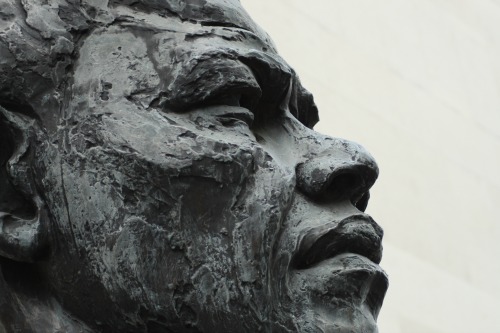
On December 5th, I woke up to the news that Nelson Rolihlahla Mandela, affectionately known as Madiba, had passed away after being “on his deathbed” for several months.
In the short time since his death, (not to mention during his many years of service to his country and world), so much has already been written and said about this great man that the only thing I can add is my personal story.
My parents, sister and I emigrated to South Africa from Italy in 1977. Back then, television and radio were heavily censored and through the media, we were taught that Nelson Mandela and the ANC (African National Congress) were “terrorists” who planted bombs and killed innocents.
Our lives were good and we didn’t question the segregation in government schools. My husband (whose family also emigrated from Italy a few years before mine) went to a private school where people of all religions and colors were happily accepted, as long as they could afford the fees.
In my opinion, Apartheid was never as rigorously enforced in Cape Town as it was elsewhere in the country. Be that as it may, most of us grew up blissfully unaware of human rights abuses and the like.
Fast forward to the 1990’s and most “white” people feared the worst. In fact, there were so many people leaving the country that a common saying was; “Will the last person to leave South Africa please switch off the lights?”
In my humble opinion it was Nelson Mandela, more than anyone else, who allowed South Africa to transition as smoothly as it did. The civil war which everyone feared just didn’t happen. Madiba revealed himself to be a man who was the polar opposite of whom many of us thought him to be (a “terrorist”). He earned everyone’s respect and admiration. He was a really great leader who never forgot where he came from. By that I mean that he never let “power” go to his head. He remained humble and approachable, and spread a message of peace and reconciliation. Mandela’s compassion and love for his fellow man are traits we’d all do well to emulate.
Sadly, the Presidents who have come after Nelson Mandela have betrayed his legacy. Madiba wanted everyone to have a better life. Sadly, things in this country have gone from bad to worse since Madiba stepped down. The most tragic part of all is that it is the very poor, “previously disadvantaged”, people who Madiba sought to empower who are worse off now than ever.
I feel I need to leave the last word to Dr. John Demartini, who wrote this in tribute to the great Nelson Mandela: ” From passive to activist and from prisoner to President one man became a legend in his lifetime though stationed in simplicity and limited in residence he moved the world. Nearly a century of living, but ultimately millenniums of presence, Nelson was contributive through the very core of his essence. It is time to reflect on his great accomplishments and revere his message. Let us all dig deeper into our own nature and find grace and poise since this one man’s direction was the purpose of freedom and presence not race. “
What one quality did you most admire in Nelson Mandela? How can use that quality in yourself to help make the world a better place?
R.I.P. Nelson Rolihlahla Mandela (1918 – 2013)
This is an original post for World Moms Blog by Mamma Simona from Cape Town, South Africa. She shares her home with a husband, 2 kids, 2 cats and 2 dogs.
Photo Credit To: Paul Simpson : Flickr Creative Commons
This photo has a creative commons attribution license.
Mamma Simona was born in Rome (Italy) but has lived in Cape Town (South Africa) since she was 8 years old. She studied French at school but says she’s forgotten most of it! She speaks Italian, English and Afrikaans. Even though Italian is the first language she learned, she considers English her "home" language as it's the language she's most comfortable in. She is happily married and the proud mother of 2 terrific teenagers! She also shares her home with 2 cats and 2 dogs ... all rescues.
Mamma Simona has worked in such diverse fields as Childcare, Tourism, Library Services, Optometry, Sales and Admin! (With stints of SAHM in-between). She’s really looking forward to the day she can give up her current Admin job and devote herself entirely to blogging and (eventually) being a full-time grandmother!
More Posts - Website
Follow Me:


by Katinka | Dec 5, 2013 | 2013, Adoption, Adoptive Parents, Being Thankful, Belgium, Childhood, Cultural Differences, Culture, Education, Eye on Culture, Family, International, Kids, Life Lesson, Motherhood, Multicultural, Netherlands, Parenting, Penguin and Panther, Politics, Siblings, Traditions, Turkey, United Nations, World Events, World Motherhood, Younger Children
 As an adoptive mother of an Ethiopian Panther, I’ve grown an extra pair of antennas when it comes to racism.
As an adoptive mother of an Ethiopian Panther, I’ve grown an extra pair of antennas when it comes to racism.
Truly, a lot of really nice people distinguish my daughter from other children, based on her color. Even if it is meant to defend her, like calling me disgusting for letting her carry the groceries, it basically still is hidden racism. Should I tell her that people believe she shouldn’t be helping me out because it reminds them of slavery while her white brother is allowed to do the same chores? I’d rather have people call me names than let them wreck my daughter’s self esteem.
However, as I’m writing this, there is a HUGE racism debate going on in Belgium and even worse in The Netherlands, where it all started. And despite my racism antennas, I just can’t fully agree with the racism-yellers this time. Not even if they yell all the way from some United Nations office.
The debate is all about the ancestor of Santa Claus: Sinterklaas. You can read here about how Santa Claus evolved from our Sinterklaas, or Saint Nicholas, who is actually believed to be Turkish, who resides in Spain, has a white horse called Bad-Wheater-Today (Belgium) or Amerigo (The Netherlands), and celebrates his December birthday by coming over to our countries and surprising children with presents.
In the Netherlands he comes over on the evening of December 5th. Later that night, he comes to Belgium and delivers toys and sweets to be found in the children’s shoes on the morning of the 6th. It’s really a children’s celebration, full of magic and anticipation. You will bump into him just about everywhere during November.
Now, because Sinterklaas is getting old and forgetful, and has a lot of work to do within 24 hours, he has helpers. These helpers are all black, and hence all called ‘Black Peter’ (Zwarte Piet).
And that’s where all the accusative fingers point.
Indeed, this tradition can be seen as offensive. I, for a fact, believe it is partly based on a slavery and stereotype-loaded past, and a lot of people agree with me. Black Peter has long been depicted as a bit slow, barbaric (kidnapping and hitting the naughty children), dressed in clownish clothes, with stout lips and being submissive to his white boss.
Of course I agree this is an awful, insulting picture to brainwash our children with during the big Sinterklaas-Awaiting-Month-of -November. I also agree an outsider would be shocked, when he meets Sinterklaas and his Black Peters for the first time, especially if oblivious to the folklore. And I honestly understand and feel the offense people take.
For me personally, Sinterklaas has me cringing with bittersweetness ever since I found out about his racist taint. I’m not even particularly fond of the Sinterklaas tradition anymore.
However, I also don’t agree that we are teaching our children racism, nor paying ode to slavery by honoring this tradition every year. Not any more, that is.
Since the 1990’s, we have a children’s holiday special on TV portraying the real story. Children are elegantly taught Black Peter is black – and not brown/colored/african – because he came down the chimney. No more, no less. Nobody really tries to explain why his clothes didn’t get black during his journey down the chimney.
It is just part of the mystery, just like Bad-Wheater-Today walking on rooftops or Sinterklaas having this enormous book in which the good and bad behavior of every single child is listed. It doesn’t make sense, but children buy it anyway.
In this TV-special, Sinterklaas is depicted as a bit senile. In fact his Black Peters are now the smart ones, all with different names according to their function or character. A bit like the Smurfs, and everyone likes the Smurfs, right?
For the past 20+ years, this special comes on every November. Along the way, children started to grow more afraid of this very strict and grumpy old man than of his joyous, candy throwing helpers. The Black Peters became the true friends of our children. And every Belgian child you ask about Black Peter’s color now, will patiently tell you the chimney-story.
To me, this shows our tradition is evolving from, I admit, a racist past, towards a new story. Just like it evolved into Santa Claus overseas—who, by the way, appears to imprison a whole lot of innocent, little people in a Siberia-like, harsh environment without paying them for their round-the-clock labor.
Therefore, I trust society may even evolve towards a tradition of White Peters in a few more years or decades. After all, with more and more houses being built without huge chimneys, we will sooner or later find out that Peter’s color is fading, won’t we?
I’m hoping that by the time this post runs, all the petitions –pro and con–the social media frenzy, any UN investigations and any public manifestations, will be over and done with. I truly hope no-one got hurt along the way, and that both camps have reached a certain level of understanding towards each other by the time Saint Nicholas wants to celebrate his birthday.
Because, you know, my children are already expecting Sinterklaas to send one of his Peters down our chimney on the 6th of December. Especially my very dark daughter is impatiently awaiting. I’d hate to disappoint her if he decided not to come this year, because he’s afraid to be called a racist. She would definitely not understand, mainly because she doesn’t see any resemblance between Black Peter and herself.
I’m confident Sinterklaas will make it, though. We are both alike, Sinterklaas and me. We’re already used to people calling us racist slave handlers. And we both know better than that.
Did you know about Santa Claus’s European past? How would you feel if he had black helpers instead of elves?
This is an original post to World Moms Blog by K10K from The Penguin and The Panther.
The picture in this post is credited to Sinterklaas Himself, who published it on Wikipedia, while undercover as Gaby Kooiman, under GNU Free Documentation License.
If you ask her about her daytime job, Katinka will tell you all about the challenge of studying the fate of radioactive substances in the deep subsurface. Her most demanding and rewarding job however is raising four kids together with five other parents, each with their own quirks, wishes and (dis)abilities. As parenting and especially co-parenting involves a lot of letting go, she finds herself singing the theme song to Frozen over and over again, even when the kids are not even there...
More Posts

by Mannahattamamma (UAE) | Jul 24, 2013 | Cultural Differences, Economy, Expat Life, Human Rights, Older Children, Politics, UAE, World Motherhood
 Decades ago, as I moved around Manhattan from cheap apartment to cheap apartment, most of my stuff fit into “New York luggage:” big black Hefty garbage bags. Now that I’ve acquired children, however, and all their junk precious possessions, the New York luggage has been retired. Now I have to hire professionals, like the team of four guys who hauled our furniture and approximately eighty gazillion boxes into long-term storage when we moved from New York to Abu Dhabi two years ago. It took us more than three days to finish that move—I’m sure those movers still have a dart board with our apartment number at its center.
Decades ago, as I moved around Manhattan from cheap apartment to cheap apartment, most of my stuff fit into “New York luggage:” big black Hefty garbage bags. Now that I’ve acquired children, however, and all their junk precious possessions, the New York luggage has been retired. Now I have to hire professionals, like the team of four guys who hauled our furniture and approximately eighty gazillion boxes into long-term storage when we moved from New York to Abu Dhabi two years ago. It took us more than three days to finish that move—I’m sure those movers still have a dart board with our apartment number at its center.
That move almost killed me—and I’m not even including the hours we spent packing and re-packing the twelve suitcases we were lugging to Abu Dhabi, in a desperate attempt to make sure that no one suitcase went over the weight limit for checked bags.
So after that move, moving from one neighborhood in Abu Dhabi to another was a piece of cake: on moving day, a squad of ten men showed up armed with huge rolls of bubble wrap and cardboard; they fanned out across our apartment and hey presto! the contents of our apartment vanished in a few days.
When we moved from New York, I don’t remember thinking much about the difference between my life and the lives of the men putting our boxes in the truck. At the risk of generalizing, I assumed that I had more education than they did, and that my children probably went to “better” public schools than theirs did (if even they had kids). I mean, I know I’m generalizing here—and maybe the movers were PhD candidates in philosophy out to make an extra buck, but that seems like a stretch. (more…)
After twenty-plus years in Manhattan, Deborah Quinn and her family moved to Abu Dhabi (in the United Arab Emirates), where she spends a great deal of time driving her sons back and forth to soccer practice. She writes about travel, politics, feminism, education, and the absurdities of living in a place where temperatures regularly go above 110F.
Deborah can also be found on her blog, Mannahattamamma.
More Posts
Follow Me:




















